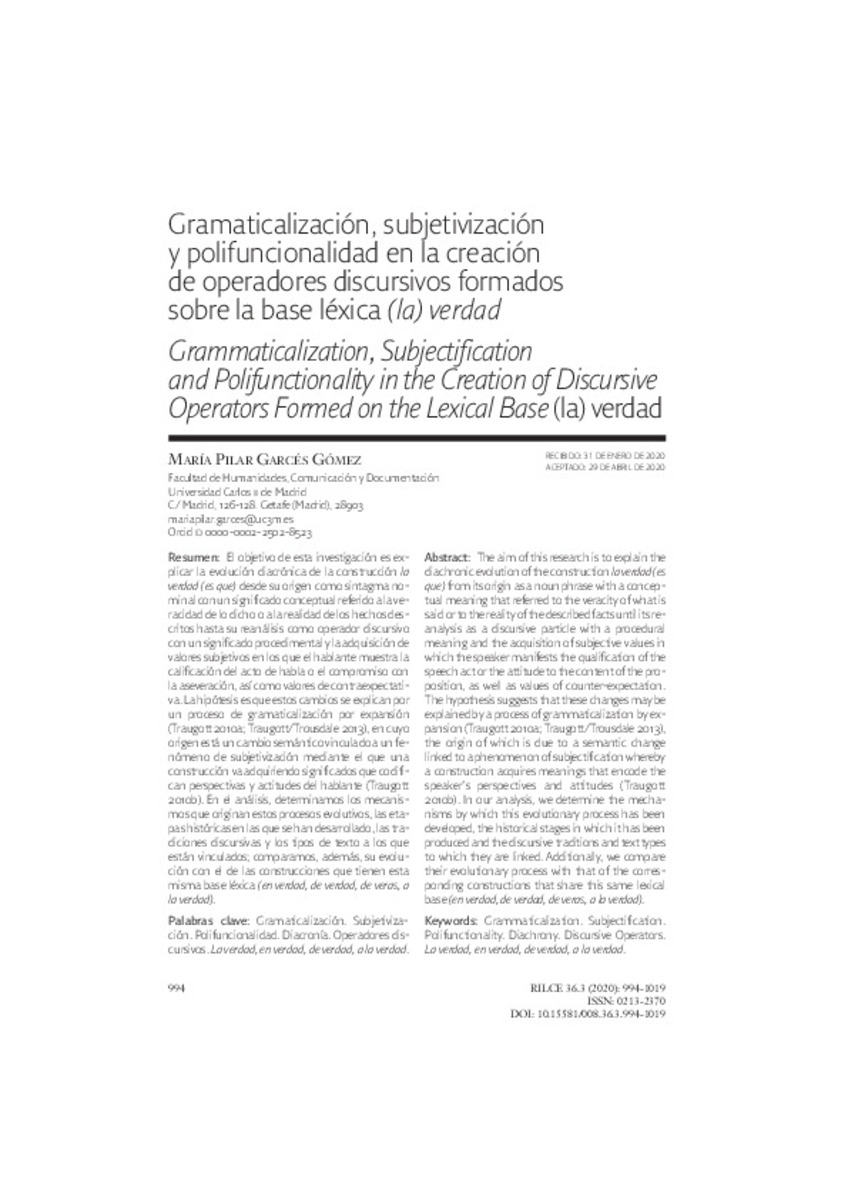Gramaticalización, subjetivización y polifuncionalidad en la creación de operadores discursivos formados sobre la base léxica «(la) verdad»
Other Titles:
Grammaticalization, Subjectification and Polifunctionality in the Creation of Discursive Operators Formed on the Lexical Base «(la) verdad»
Keywords:
Gramaticalización
Subjetivización
Polifuncionalidad
Diacronía
Operadores discursivos
la verdad
en verdad
de verdad
a la verdad
Publisher:
Servicio de Publicaciones de la Universidad de Navarra
Citation:
Garcés-Gómez, M.P. (María Pilar). "Gramaticalización, subjetivización y polifuncionalidad en la creación de operadores discursivos formados sobre la base léxica «(la) verdad»". . 36 (3), 2020, 994 - 1019
Statistics and impact
0 citas en

0 citas en

Items in Dadun are protected by copyright, with all rights reserved, unless otherwise indicated.








